

All you need to paint is a few tools, a little instruction, and a vision in your mind.
~ Bob Ross Coe
Whether you are a full-time painting contractor or a DIY-er, one of the essential tools any painter needs is personal protective equipment (PPE). From thick disposable latex gloves to safety glasses and goggles, painters absolutely must wear PPE to avoid a lifetime of potential health complications caused by the hazardous substances associated with painting.
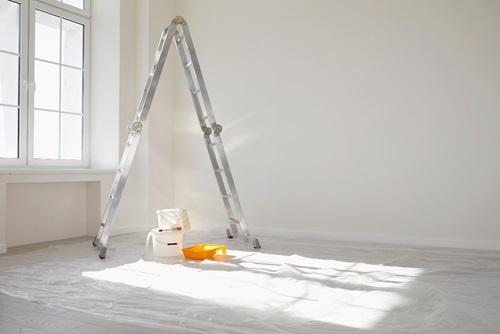
The paint industry is a significant component of new home construction
We highlighted paint-related safety and health hazards in our article focused on spray-painters. Old paint, toxic paints, and mixing equipment are all concerns for those working on automobiles. But are those hazards relevant in the construction industry, too?
On this industry page, we cover a wide range of construction painting topics: the industry, types of painters, employment, work activities, painters’ tools, professional associations and organizations, and safety hazards. You may opt to continue reading to learn more about painting occupations and the painter's daily work activities, or you can click the hazard warning icon and be taken directly to the safety section for this industry, its suggested PPE, and a list of potential hazards.

Let's paint the big picture of the painting industry!
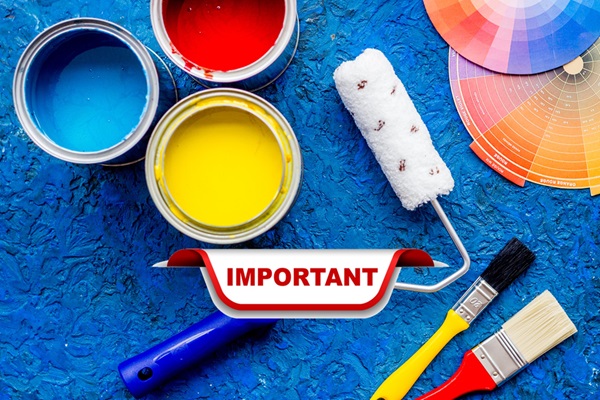
Paint serves a vital role across construction and industrial landscapes. It provides a protective coating that allows walls to withstand wear and tear from the sun, wind, and outdoor elements. Without paint, buildings, machinery, and homes will begin to rust, scratch, and wither away. And a fresh coat of paint can transform any structure into an outer look with beauty and color.

Is painting considered construction? You better believe it! Most painters make a living by working in the
construction industry, and those painting services make up the construction sub-industry identified by NAICS
238320. The coded number allows the government to classify all activities performed by a particular sector's
businesses, helping workers and suppliers better understand the industry.
According to IBISWorld, the painting industry produces over $18
billion in economic activity each year, with over 236,000 total businesses within this sector. All companies
operating in this industry are referred to as Painting and Wall Covering Contractors.
Those who work in this part of the construction industry paint buildings and structures, both the interior
and exterior. Before we move on to explore more about these workers, let's first highlight some of the tools
that all painters, even your hobbyists, may find interesting.
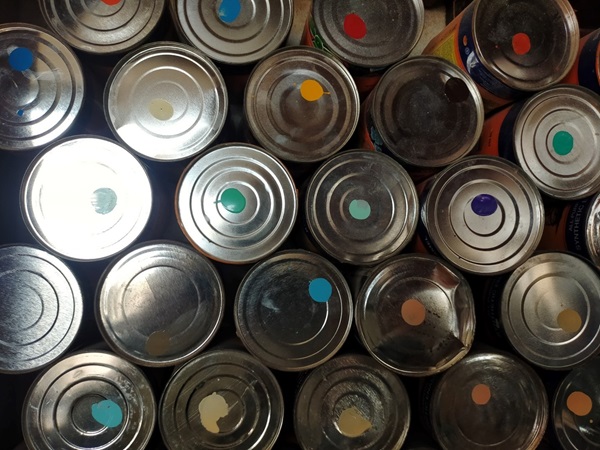
Much of the guesswork has been taken out of the painting process. Painters, and those seeking painting services, have unlimited resources to ensure coatings go up the way they are envisioned. Here are some of the most useful educational resources for painters:
Home Advisor
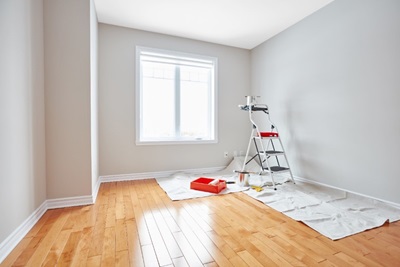
HomeAdvisoris an excellent resource for those looking to tackle a painting project. Besides offering all types of relevant painting content, their website accurately estimates painting costs and offers suggestions for local painting contractors by zip code .
Here are three of their top painting pages, based on wen traffic:
Within seconds, you'll be armed with tons of important painting information by visiting HomeAdvisor.
Painter Guides

It can be a daunting task to determine where to start in a painting project. Painter-Guide.com is a free resource with numerous guides designed to help painters by providing painting insights and suggestions. Whether you're painting a house on your own or are a contractor hoping to grow your business, you'll find all kinds of valuable painting information when you visit Painter-Guide.com. The product reviews alone are worth the visit to this website.
Here’s a shortlist of some of the top resources you’ll find on Painter-Guide.com:
We know you're going to enjoy visiting all the painting resources found on Painter-Guide.com. And, before we head off into safety and PPE, we've got one more nugget of painting information to share.
Paint Color Charts
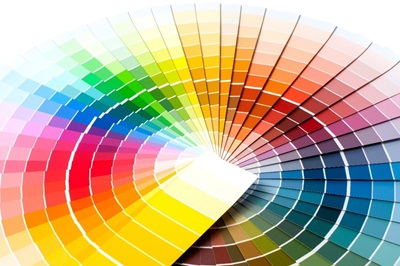
A color chart provides painters with a visual reference aid. It helps painters and customers see what colors work best together.
BEHR's online Color Smart selector guide is perfect for those wanting to explore their paint choices across the full-color spectrum.
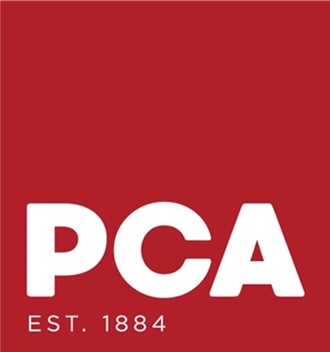
The Painter Contractors Association (PCA), a national association dedicated to those who find employment through painting and decorating, set the industry's standards. Over 310,100 contractors take advantage of the association's educational resources, networking opportunities, and events. Here are two of the top resources for painters that can be found on the PCA website:
Other painting contractor unions and associations include:
All painting associations have one thing in mind, arming painters with the most relevant, up-to-date information possible to help them best perform their job. Many different types of painters in this industry look to these professional associations for answers.
Whether they're painting older homes, new homes, outside decks, or commercial buildings, professional
painters help finish construction projects by adding a beautiful coat of paint and protection.
Painters are also found across numerous industrial sectors, applying the coatings to maintenance facilities,
machines, and buildings. According to the Bureau of Labor Statistics (BLS), there were 379,500 painters with employment in
2019. Here is a breakdown of where painters are employed:
| Employment Source | % Employment |
|---|---|
| Painting and wall covering contractors | 39 |
| Self-employed workers | 38 |
| Residential building construction | 4 |
| Government | 2 |
| Nonresidential building construction | 2 |
Within the construction industry, the BLS shows 214,400 painting contractors.
That means 56% of all painters work in construction.
The above descriptions of where painters work help simplify where painters operate. They are everywhere, painting all kinds of objects and materials across multiple industries. Here are some things painters paint:
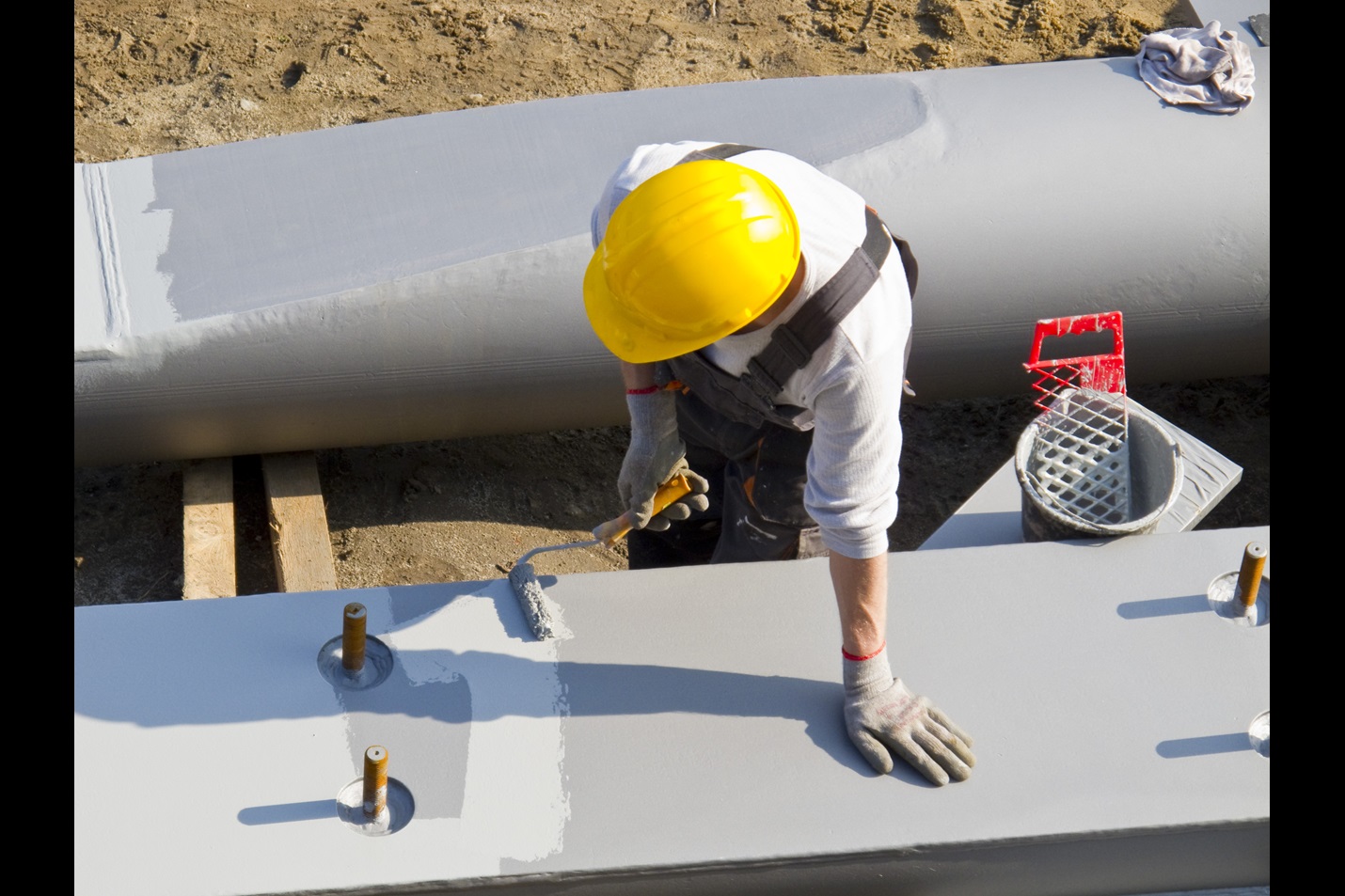
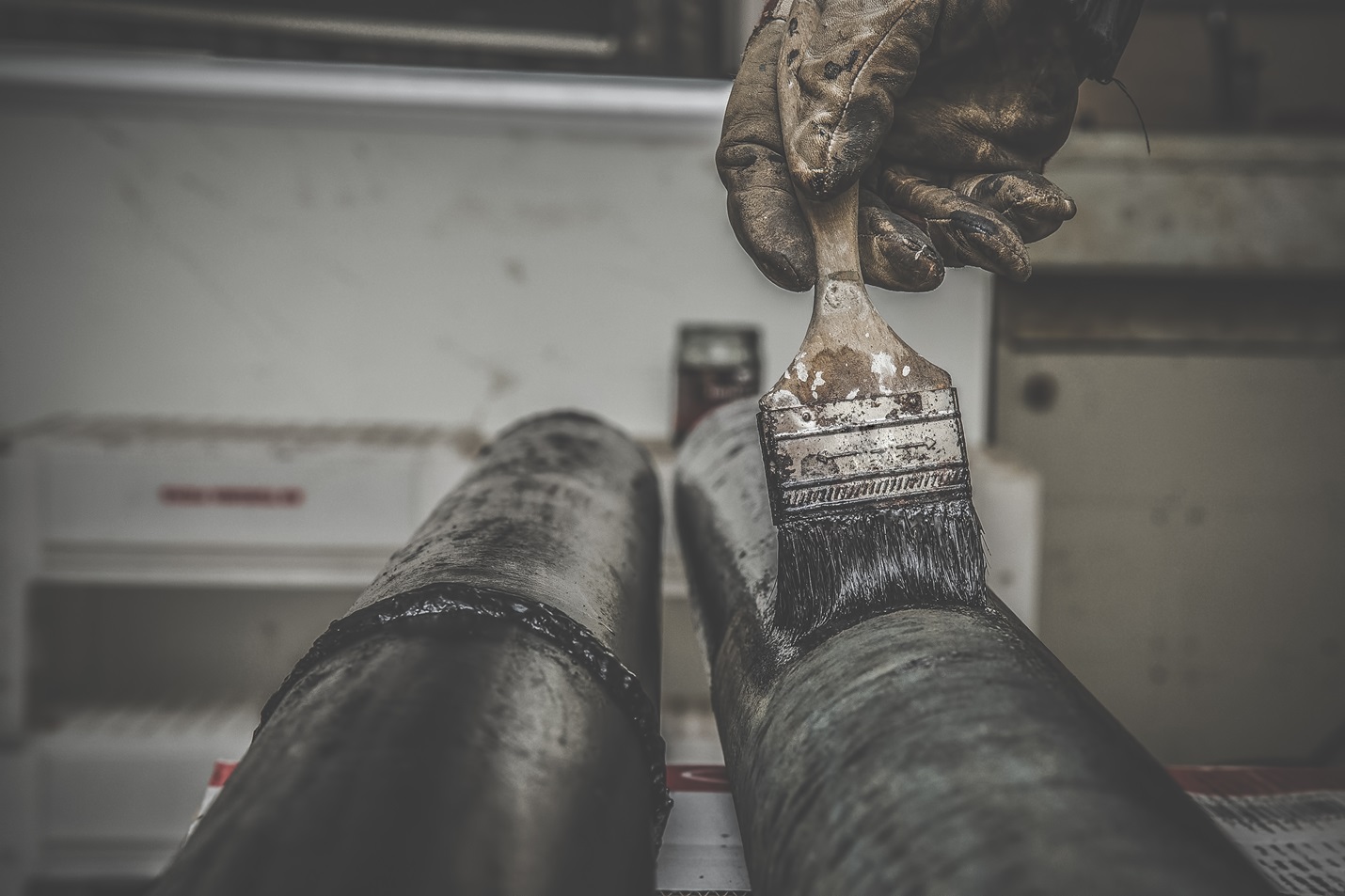
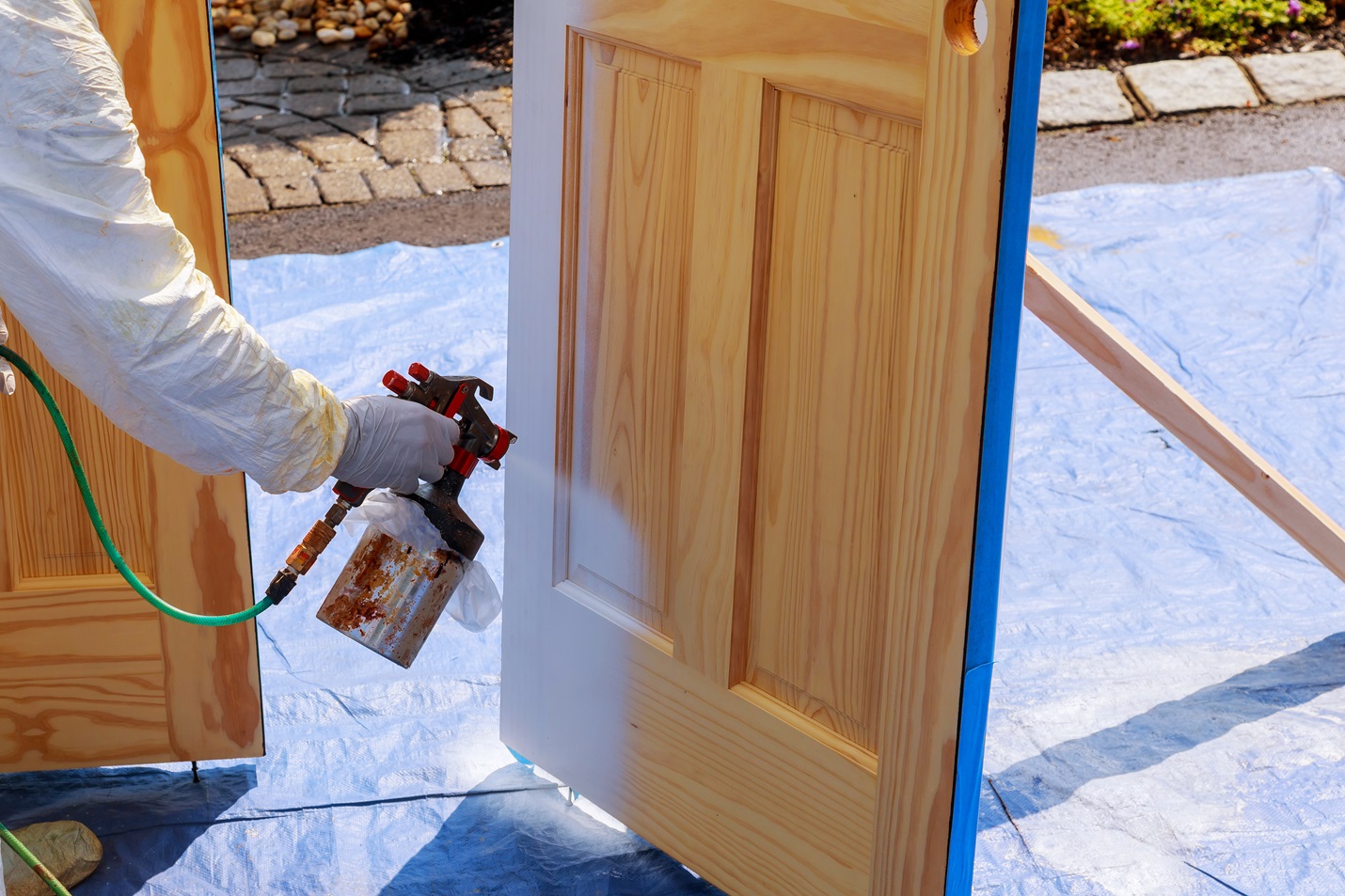
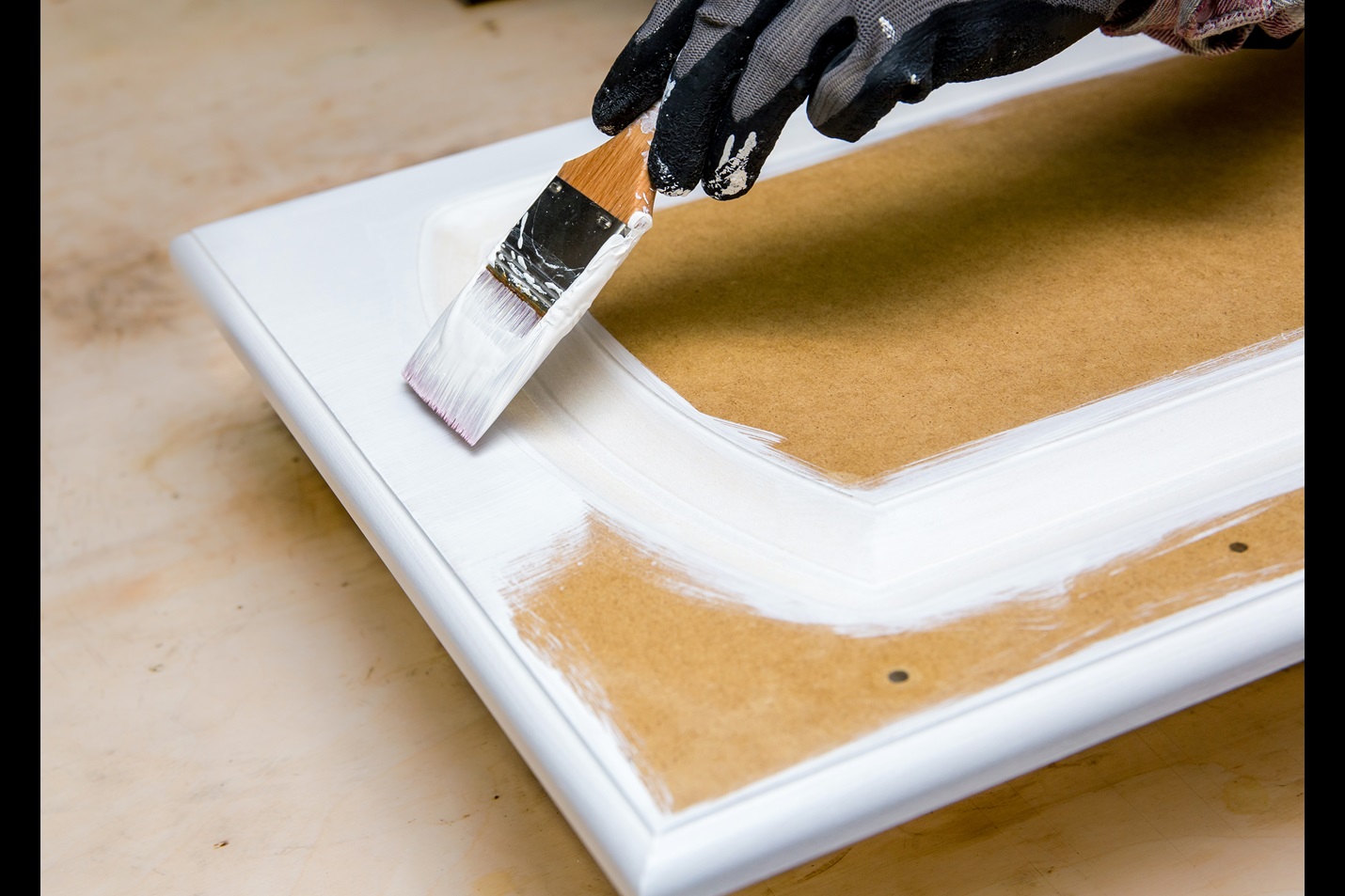
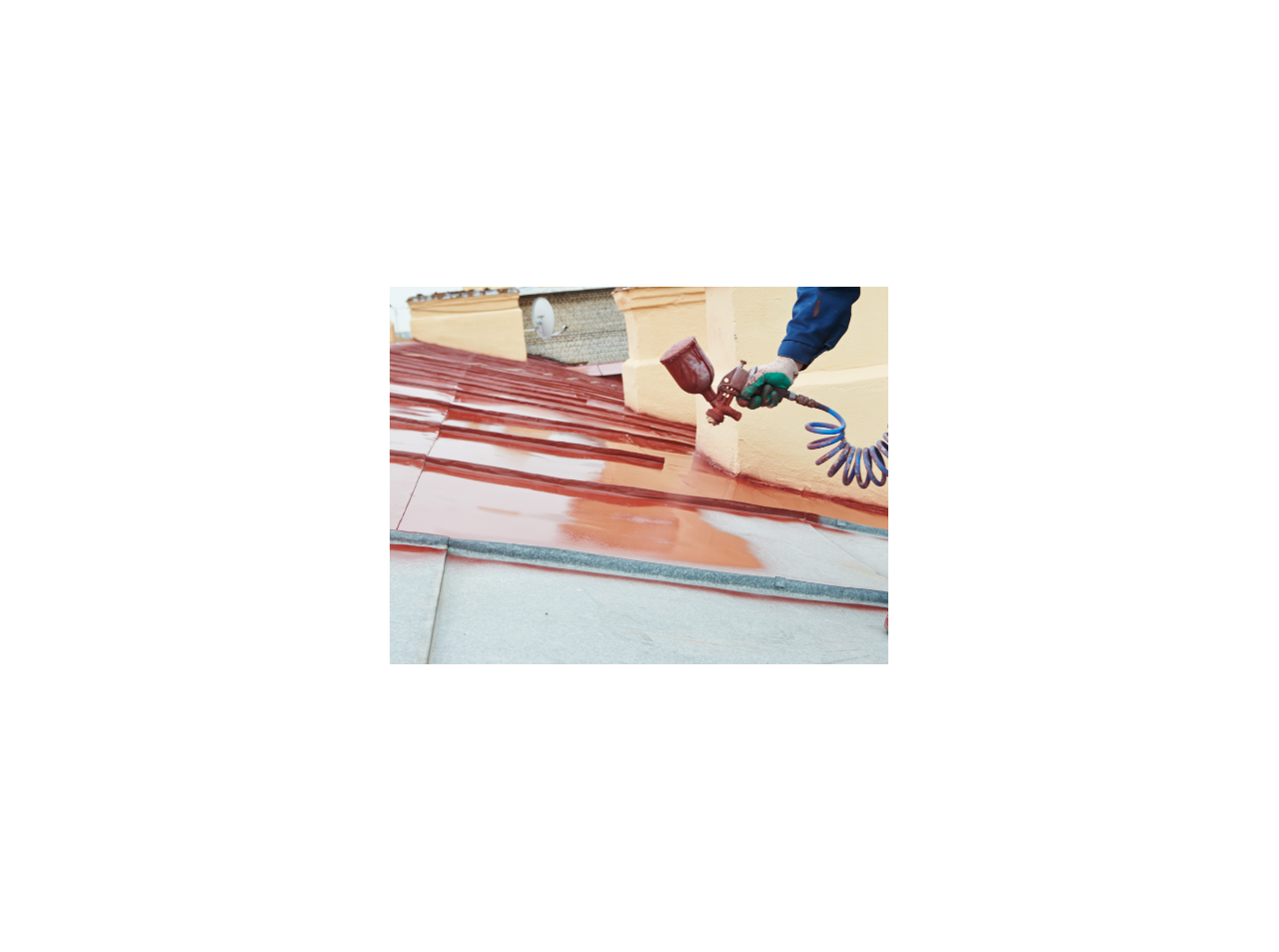
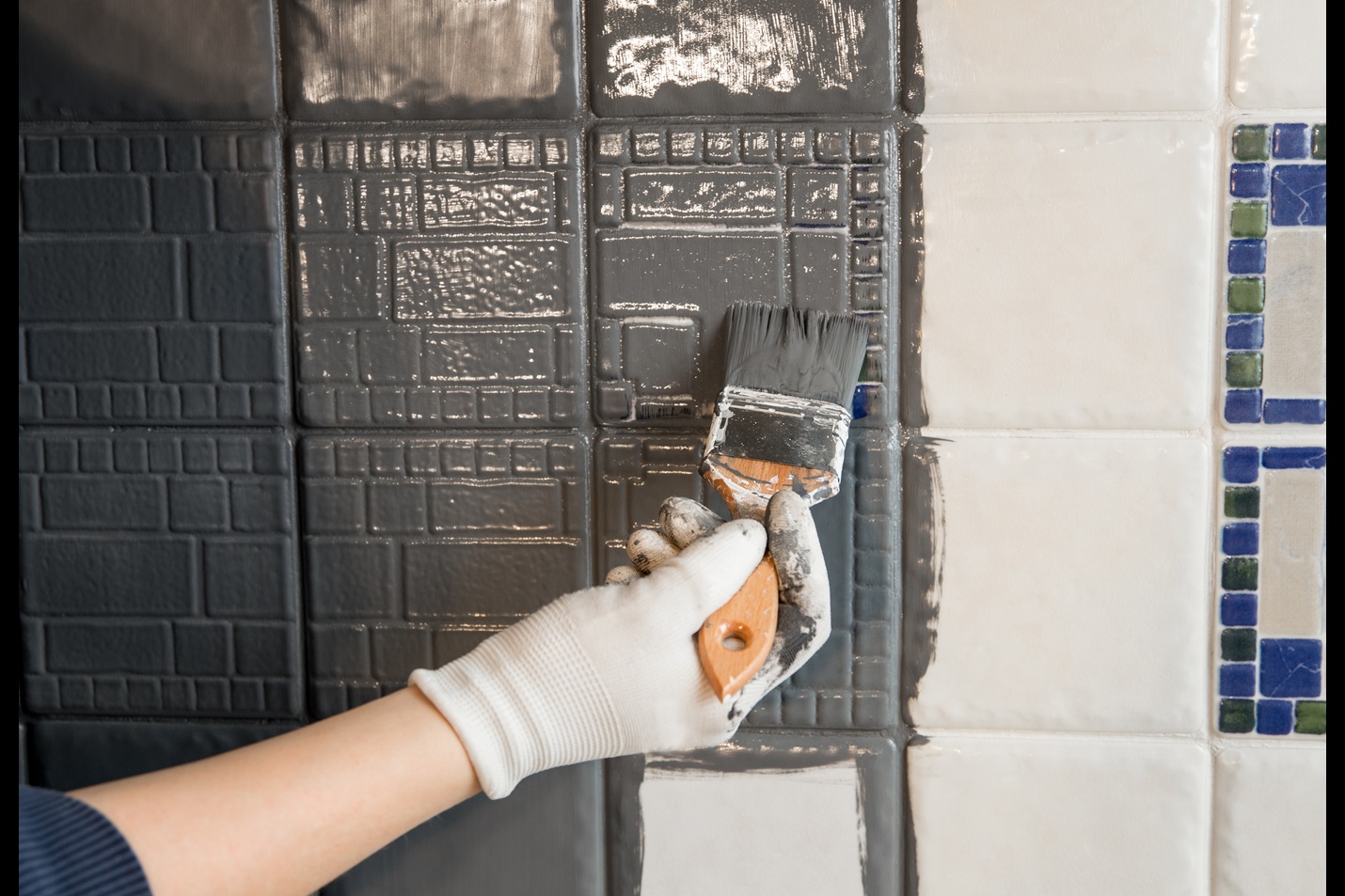
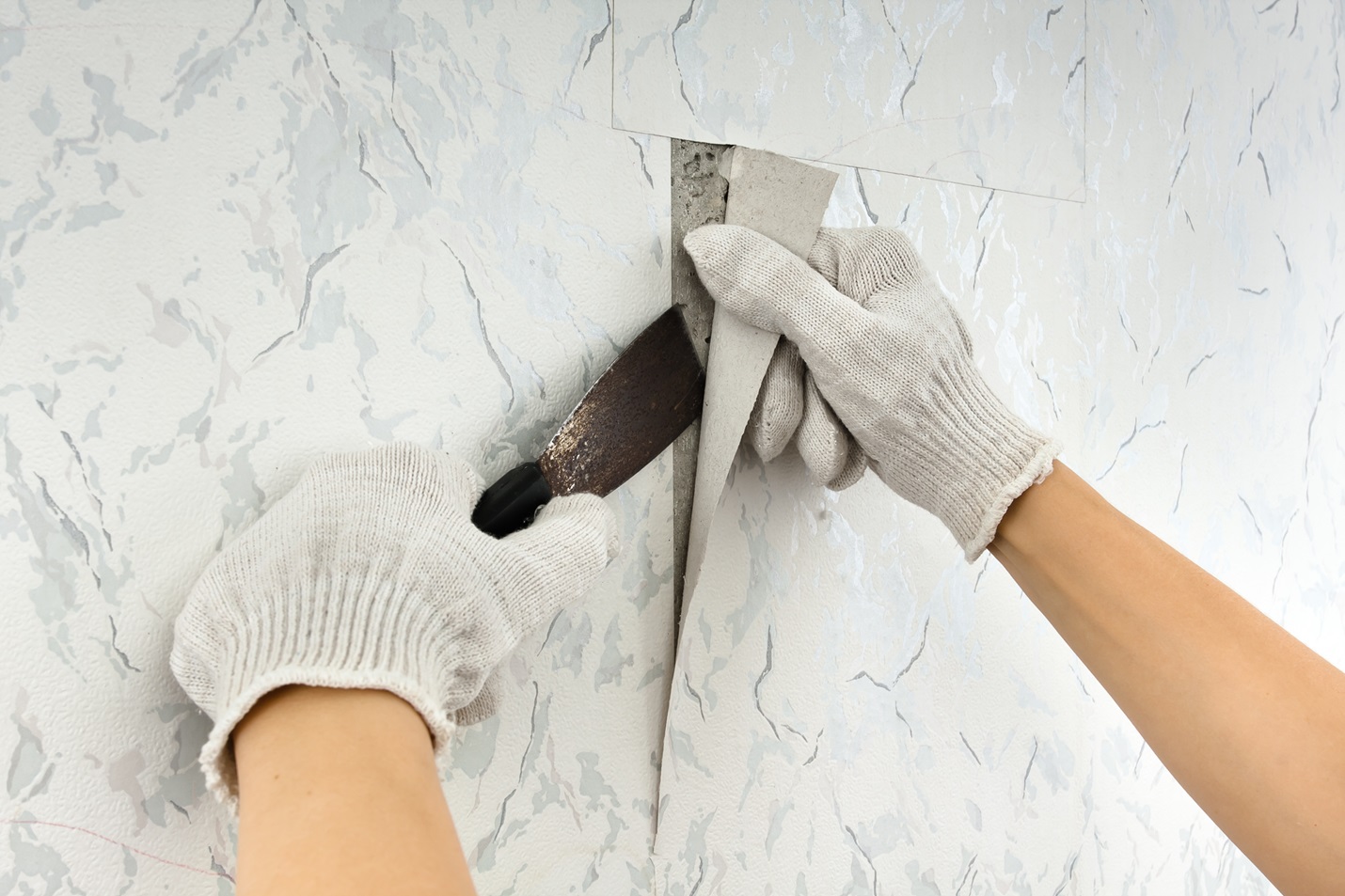
As you can see, painters are responsible for painting all kinds of objects. To cover the wide range of things that need to be painted, contractors will often specialize in specific areas.
There is not just one type of painting contractor finding employment across American industries. The BLS highlights three different categories of painters finding work in the U.S. In addition, OSHA’s Standard Industrial Classification (SIC) lists 1721 different classifications of painting and paper hanging, highlighting where painters may find employment.
Commercial Painter Contractors
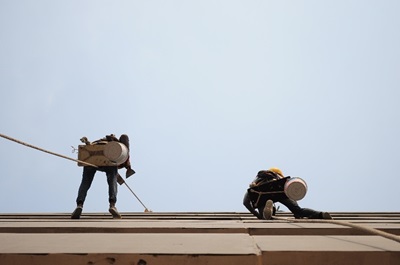
These painters focus on painting offices, businesses, and other commercial spaces. Over 4,900 commercial painter contractor companies operate in construction in the U.S.
Industrial Painters
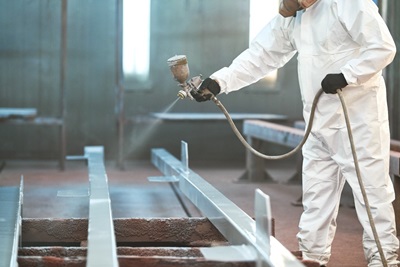
This group paints large machinery and equipment.As of 2019, there are more than 1,500 companies that paint aircraft, bridges, pavement markings, and ships.
Residential Painters
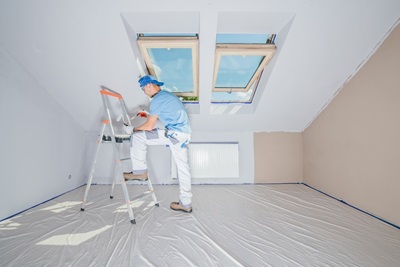
These painters paint the inside and outside walls and ceilings of residential homes. Roughly 15,600 residential painting companies operate in construction.
Wallcovering Contractors -
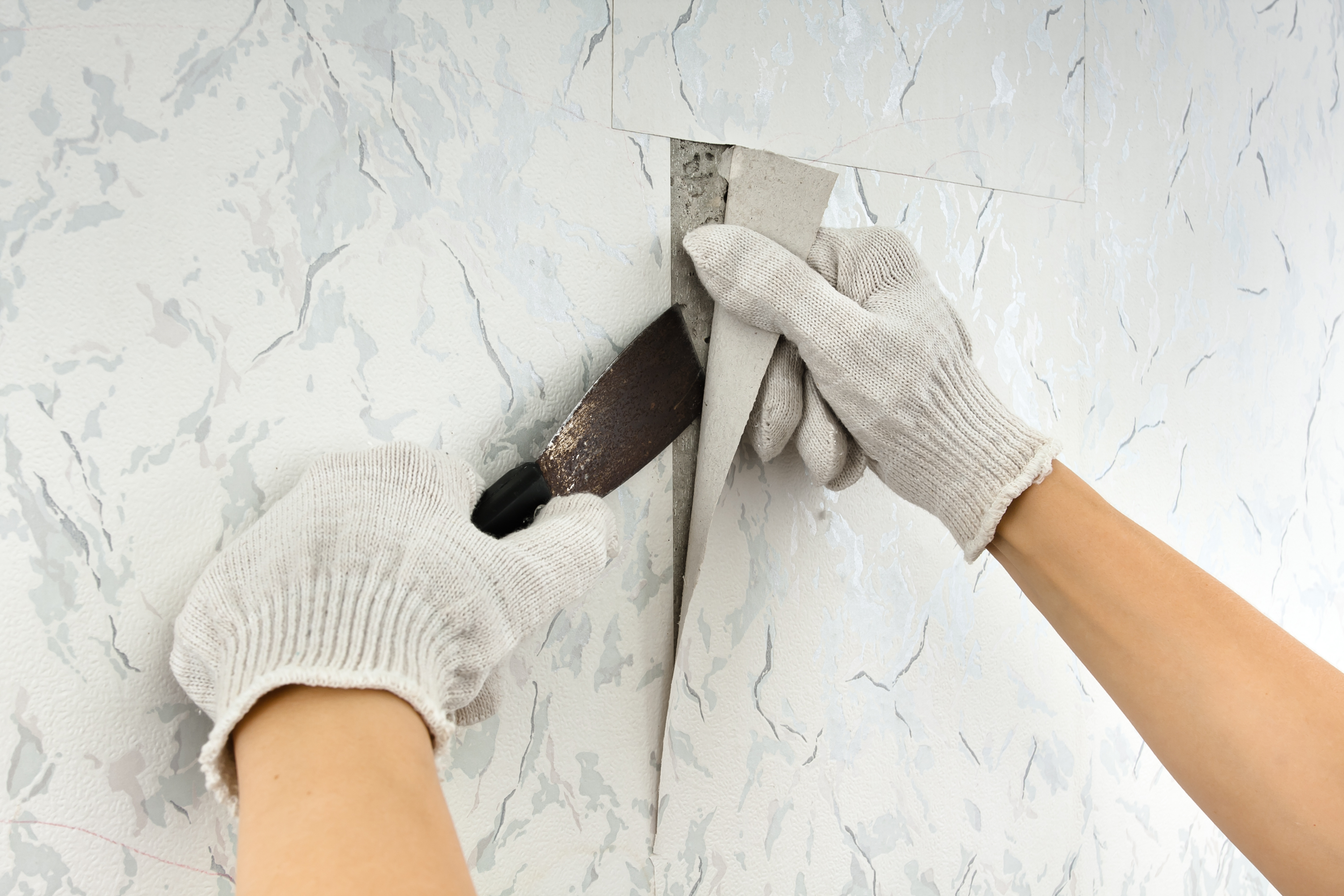
This group is responsible for hanging wall coverings, and stripping and removing wallpaper. Approximately 1,200 wallcovering contractor companies are operating in construction.
These painting contractors may all specialize in different areas ; however, they share more similarities than one might think. As we’ve mentioned above, one thing that all share is the need to wear PPE. According to O*NET OnLine, painters all spend time standing, and 89% of painters surveyed agreed with that fact. In addition, painters are always using their hands to feel objects and control tools. Let's look at some of the activities and tools these painters are likely to use, as they play an essential role in worker safety.
What does a painting contractor do? Painters perform the physically challenging work that includes bending, reaching, and climbing required to paint particular objects. Here are some of the work activities you may find painters performing:
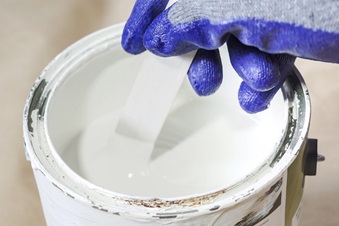
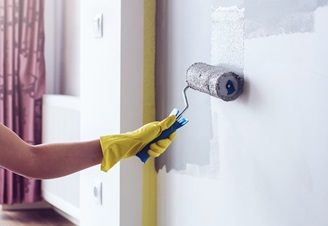
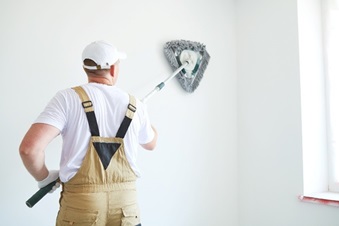
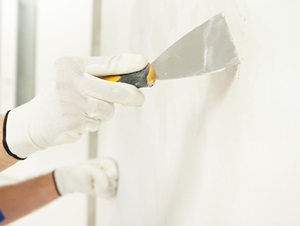
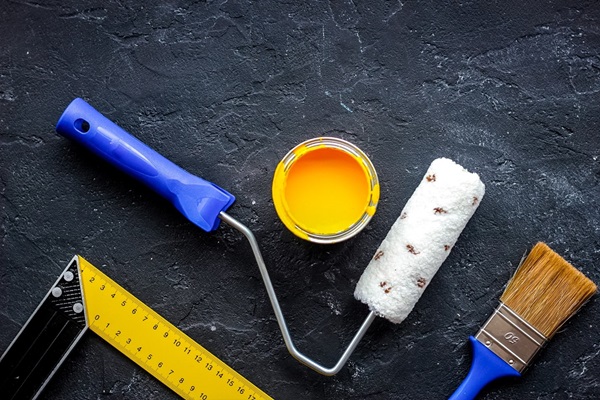
Painting a house or commercial building is no small undertaking. Every professional painting contractor
requires a wide range of painting supplies and tools to complete their projects.
While some painters might prefer Norton abrasive tools, others must have Hyde tools to complete their
painting project. Regardless of preference, tools are a part of the trade, and choosing the right ones saves
time. But with tools come potential dangers. We highlight some common painting tools that can also pose
hazards to the user.
Here are some common tools used by painters:
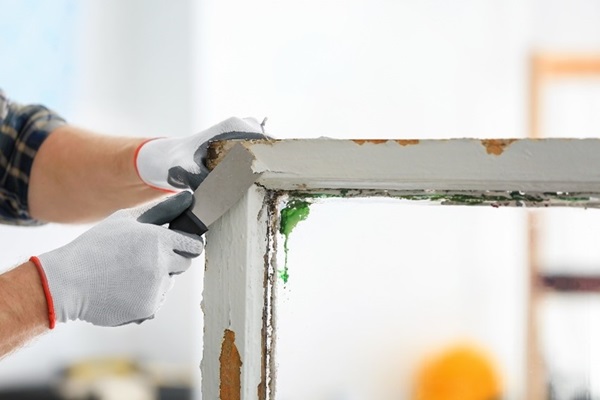
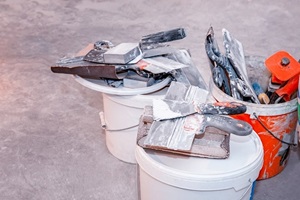
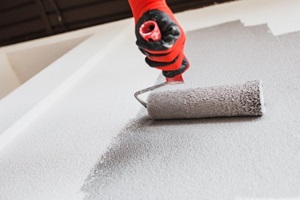
What is a common theme found in the pictures above? Painters wear gloves to keep their hands protected! You're not going to want to pass on protecting this tool, as hands are what help you pay the bills!
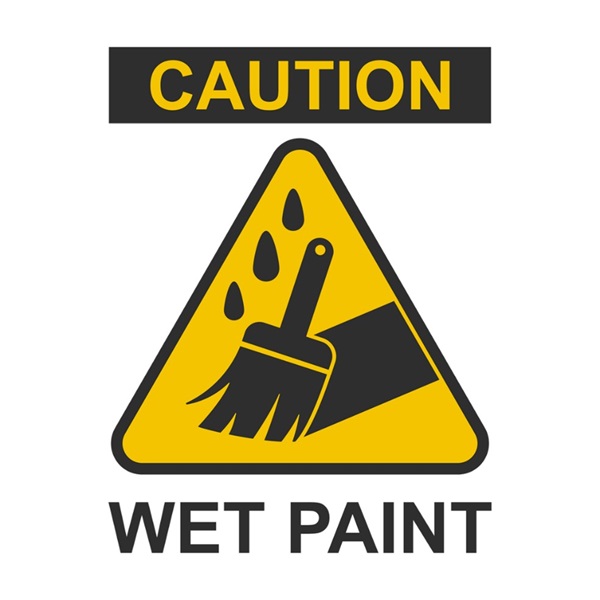
Technically speaking, safety hazards are everywhere on a construction site,
which means painters must always be aware of their surroundings. Once paints and coatings start being
applied to objects, the threats are ramped up a notch.
The good news is that painting ranks towards the bottom of the construction industry for injuries,
coming in at #15 out of 21 construction sub-industries. There are only 2.2 injuries for every 100
employees, compared to 4.9 for roofing contractors. With that said, don't let the numbers allow you to
let your guard down. All it takes is one time forgetting to wear your air-purifying respirator, and you
could have a life-long injury.
Here are some areas and applications where painters must be on guard:
There are many ways to apply paint depending on the object's surface and the paint's characteristics. And there are numerous ways painters can be injured, as we note in our hazard section. Painting can cause severe harm to a person; however, the risks can be mitigated. Before we move on to the necessary PPE for painting, here are some other helpful online resources regarding painter safety:
With all the safety information and hazard information we've equipped you with, you're now ready to start considering PPE options available to painters.
If they want to be safe and avoid injuries and potential death, painters should use the appropriate safety supplies, including PPE. In addition to keeping you safe from physical injury, PPE, like DuPont™ Tyvek® coveralls, helps keep paint and dust off your body. Here is a broad list of various PPE MCR Safety offers to help painters stay protected:
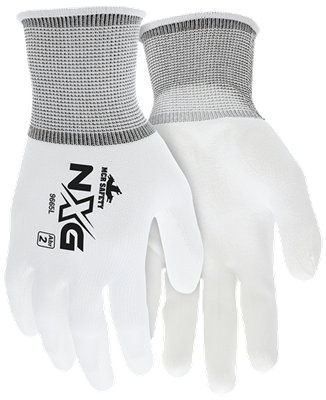
You might be wondering, why do painters wear white? It started 400 years ago when sailors began using old,
worn, useless white canvas sails and turning them into pants. They found the material durable and
lightweight, and a white fashion statement began. This practice was then solidified in the 20th
century when unions
began making white the official standard for painters’ clothing. You'll find white cotton and nylon
dipped gloves, white Tyvek® coveralls, and even white steel toe boots from MCR Safety.
We've highlighted a lot of information and thrown a bunch of industry stats at you. This page's remaining
part showcases common painting hazards and different PPE options painters should consider wearing while
performing their work.
If you prefer going back to the main Construction home page, click the image below. From the home page, you'll be able to access any of the numerous construction industries we cover. If you would prefer to check out some of painting’s specific hazards, please continue reading below.

MCR Safety's dedicated Construction Industry resource page.
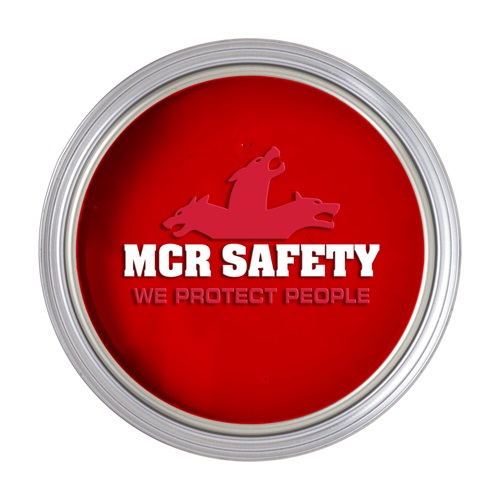
Find the right MCR Safety product that protects you against these common hazards.
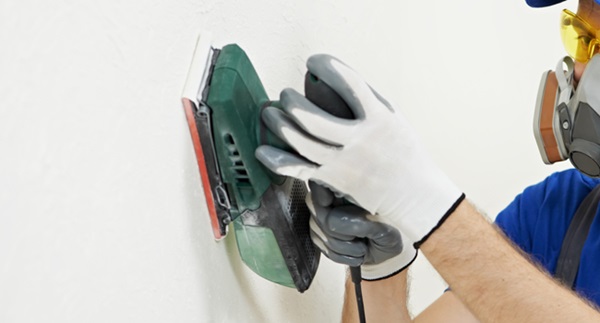
Whenever you're using tools during sanding, a nice pair of MCR Safety leather gloves comes in handy! Nobody wants abrasion injuries after sanding. For those who like to increased hand dexterity, our seamless nitrile gloves are an excellent choice!
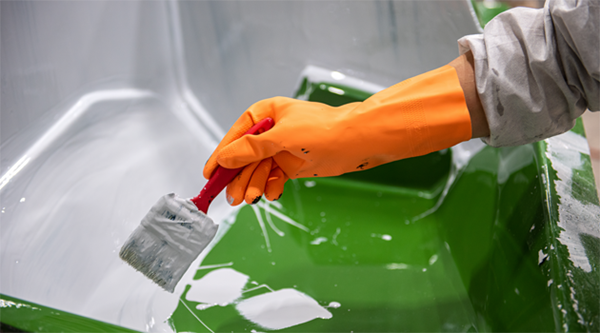
Thousands of chemical compounds are used to manufacture paint products like pigments, extenders, binders, additives, epoxies, isocyanates, and solvents. Whenever you're handling paint thinner or solvents (toluene, xylene, ketones, alcohols, esters, and glycol ethers), be sure you're wearing chemical-resistant gloves.
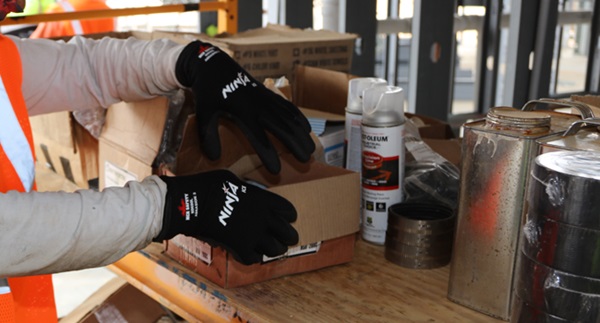
There is no off-season for painters, which means these workers need insulated gloves and winter jackets during the colder months. Have you seen our top-selling Ninja Ice gloves?
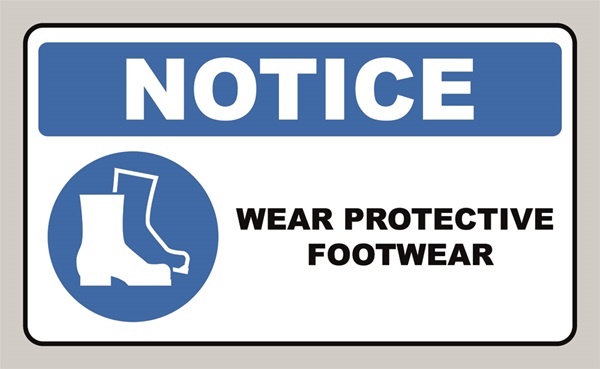
Most construction sites require workers to wear steel toe boots. Painters can often get away with wearing comfy sneakers as they work inside. However, there are times when painters need the protection of boots. We offer white steel toe boots to match the white attire painters wear!
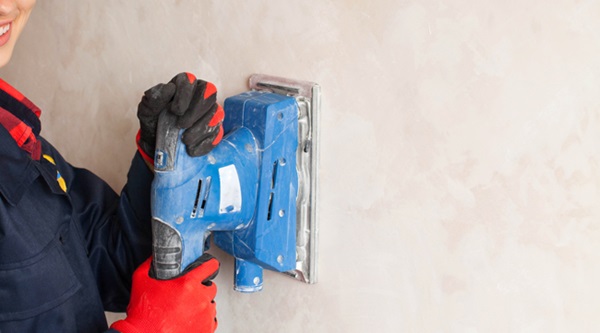
Sanding off old paint increases the amount of dust in the air. A nice pair of sealed eyewear or goggles makes a big difference in keeping eyes protected. We do offer dust masks and KN95 respirators. However, it’s important to note, MCR Safety’s dust masks are not designed for use around paint. Only specially-designated paint respirators should be used, and these are not a form of PPE that MCR Safety stocks. We Protect People, which is why we remind you to use the proper mask type for your painting project!
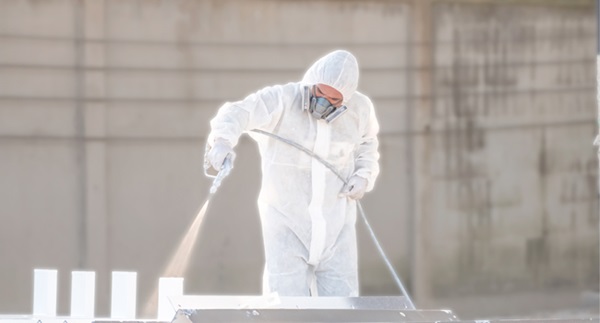
MCR Safety carries a wide array of apparel, including Henley t-shirts and long sleeve hi-vis shirts. We also offer white Tyvek® coveralls and shoe covers to protect your body and clothes from paint.
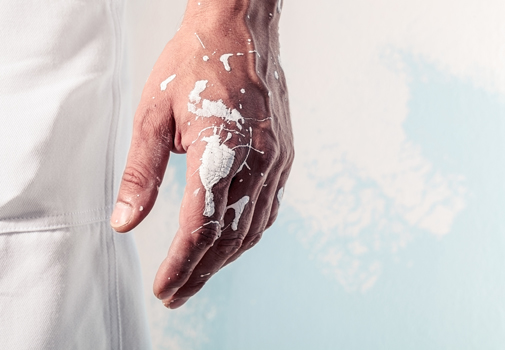
It may not seem like an immediate hazard, but painters use their hands a lot for drywall taping, sanding, and painting. When hand pain and fatigue starts to kick in, people start making mistakes, and those hands can face dangers! Thin protective gloves are a painter's best friend. And check out the drywall gloves we have to offer!
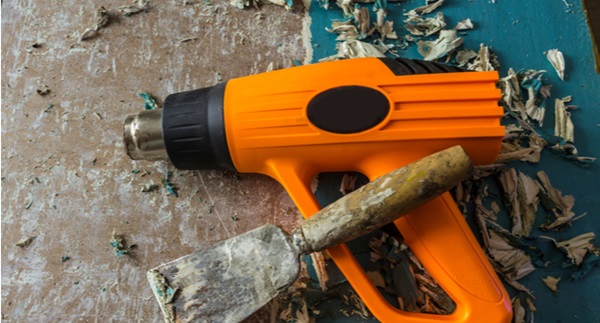
Heat-stripping guns can reach up to 1,200°F! Heavy-duty leather gloves offer excellent heat protection.
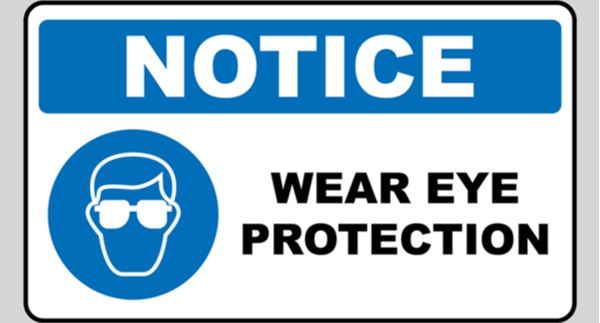
Sanding debris, spills, and splashes are always a concern during painting. Painters turn to MCR Safety goggles, safety glasses, and face shields to keep paint out of their eyes. Whenever you're operating abrasive blasters or looking up during spray painting, the hazards to your eyes are even more significant.
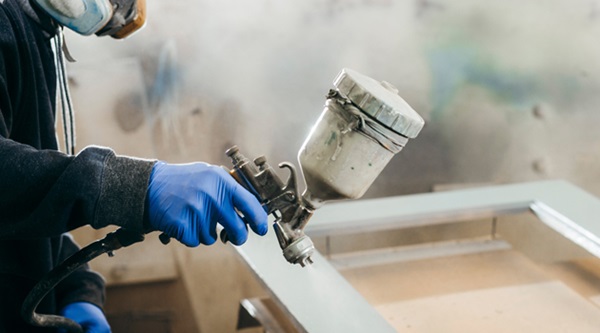
Skin irritation from spills, splashes, and sprays is all too common for painters. Dermatitis and skin rashes can occur when harsh or caustic elements come into contact with the skin. Even if you're wearing a traditional work glove, it makes sense to wear it over the top of a disposable glove. That way, the lightweight disposable keeps the paint or liquids from touching your hands.

Painters may find themselves working outside and having the sun glaring down on them, which means the body needs covered up with cool, breathable fabrics. Polarized safety glasses also help minimize the glare and keep the eyes protected!
 Why MCR Safety Products?
Why MCR Safety Products? 
MCR Safety manufactures and supplies Personal Protective Equipment (PPE). Simply put, WE PROTECT PEOPLE! We are known world-wide for our extensive product line depth surrounding gloves, glasses, and garments spanning across numerous industries. We offer the total package of safety gear encompassing industrial gloves, safety glasses, protective garments, welding gear, industrial boots, Flame Resistant (FR) gear, face shields, and much more. From a glove standpoint alone, MCR Safety manufacturers and supplies over 1,000 different style gloves. Here are some of the many reasons MCR Safety is your go to source for PPE:
MCR Safety is recognized as a global manufacturer stretching across six countries, with both distribution and manufacturing facilities. Our core competency and specialty is manufacturing and supplying protective gloves, glasses, and garments. The information shown and provided on MCR Safety’s website, its safety articles, industry resource pages, highlighted hazards and safety equipment should be used only as a general reference tool and guide. The end user is solely responsible for determining the suitability of any product selection for a particular application. MCR Safety makes no guarantee or warranty (expressed or implied) of our products’ performance or protection for particular applications.